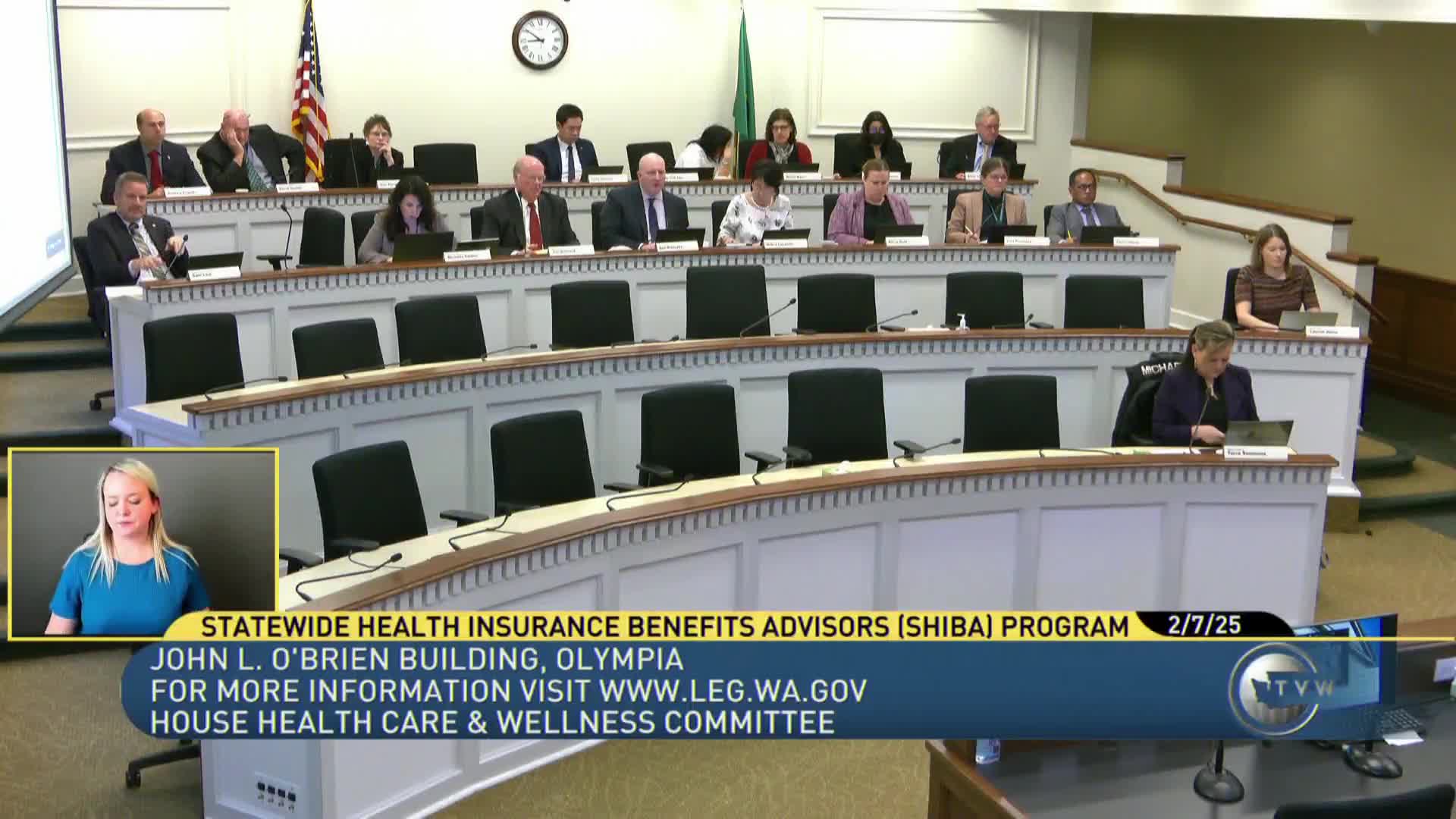Insurance commissioner briefs committee on Medicare basics and SHIBA volunteer counseling program
Get AI-powered insights, summaries, and transcripts
Subscribe
Summary
Office of the Insurance Commissioner staff outlined Medicare parts, differences between Original Medicare and Medicare Advantage, and described the state’s SHIBA volunteer program that helps beneficiaries navigate coverage choices.
Officials from the Washington Office of the Insurance Commissioner told the House Health Care & Wellness Committee on Feb. 7 that Medicare’s structure and coverage pathways can be confusing for beneficiaries and that the state’s SHIBA (State Health Insurance Benefits Advisors) program provides free, unbiased counseling.
Nico Janssen of the Office of the Insurance Commissioner gave the committee an overview of Medicare Parts A (hospital), B (outpatient), C (Medicare Advantage) and D (prescription drug benefit), and described the differences between Original Medicare (Parts A and B with optional Part D and possible Medigap supplements) and Medicare Advantage (private plans that often include Part D and networks). Janssen said federal law preempts state regulation of most Medicare matters but that the state does regulate Medigap (Medicare supplement) plans.
Tim Smolin, SHIBA program manager, described the program’s work identifying low‑income beneficiaries eligible for Medicare Savings Programs and “extra help” for Part D drug coverage. He explained that Washington uses community rating and two rating pools for Medigap plans, and that guaranteed‑issue rights are limited and governed primarily by federal law.
Maureen Hill, a long‑time SHIBA volunteer at Senior Services for South Sound, described being trained to provide free, unbiased counseling, the time commitment required of volunteers and the program’s statewide reach. She described SHIBA’s role in educating beneficiaries about enrollment periods and the trade‑offs between Medicare Advantage and Original Medicare with Medigap.
Committee members asked why guaranteed‑issue periods are limited. Tim Smolin and Nico Janssen explained federal policy concerns about adverse selection — that open guaranteed issuance outside limited windows can lead people to wait until they need care to enroll, which raises premiums and destabilizes risk pools.
OIC staff said about 60 percent of Washington beneficiaries are in original Medicare and 40 percent in Medicare Advantage; nationally the split is about half and half. Janssen and Smolin said OIC aims to expand outreach and thanked volunteers.
